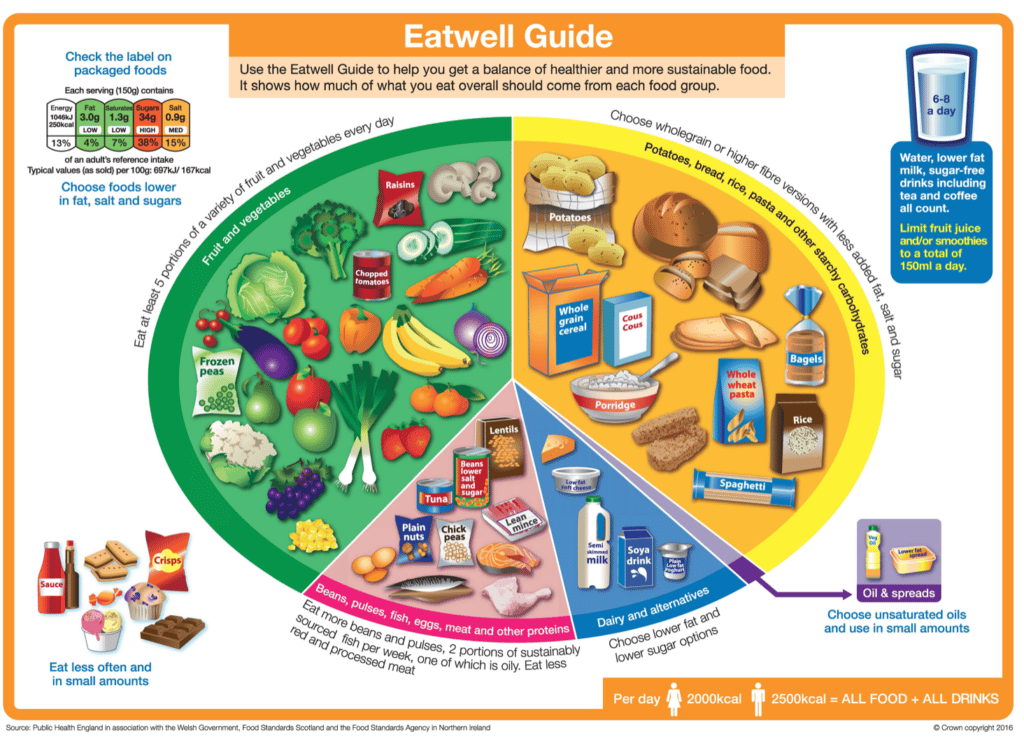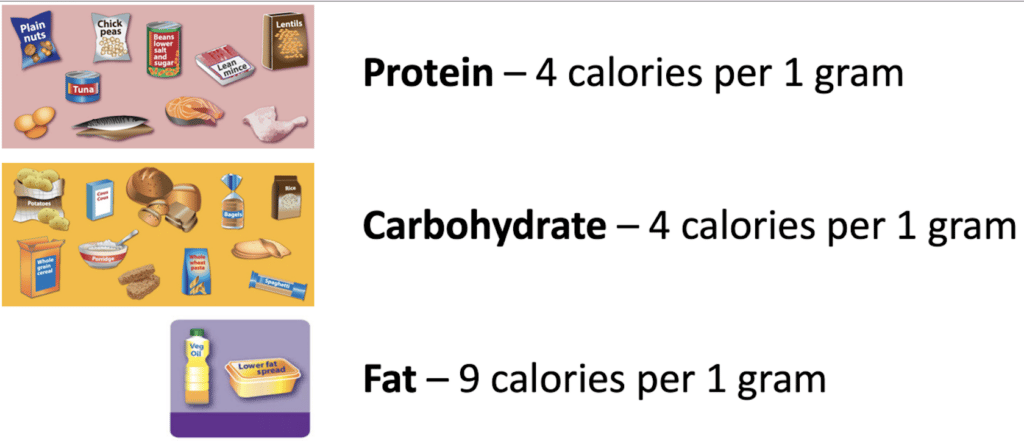Carbohydrates are a macronutrient (alongside protein and fats), meaning that they are needed in large proportions in our diet and that they provide us with energy, as opposed to micronutrients that we need in smaller proportions and don’t provide us with energy (vitamins and minerals).
Carbohydrates in foods are found in the form of either sugar, starch or fibre. Sugars are the carbohydrates added to products to make them taste sweeter, often referred to as free sugars or added sugars.
Sugars are found in foods like biscuits, sweets, chocolate, breakfast cereals, cake, flavoured yoghurts and soft drinks. Natural sugars found in things like fruit juices, smoothies, honey and agave would still count as free sugars, however there are naturally occurring sugars found in fruit, vegetables and dairy that don’t count as free sugars – more on this in our upcoming sugar blog!
Starch is a carbohydrate found in foods that come from plants – such as bread, pasta, potatoes, and rice. Fibre also comes from foods that come from plants and is found in the cell walls, a part of the plant we can’t fully digest. Foods that are good sources of fibre include wholegrains, pulses, fruits, vegetables, nuts and seeds.




